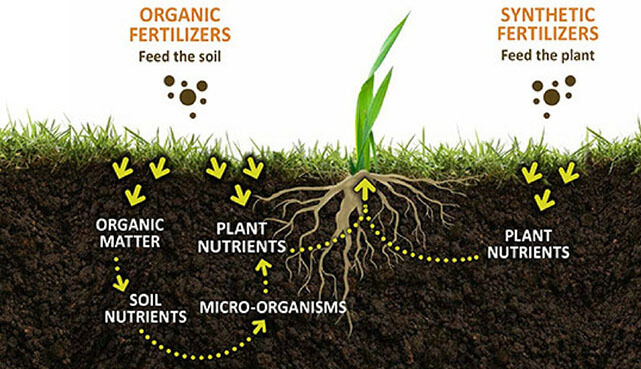Introduction
Organic fertilizers are derived from natural sources and are an essential component of sustainable agriculture. Unlike synthetic fertilizers, organic fertilizers provide nutrients to plants in a slow-release manner, promoting long-term soil health and minimizing environmental impact. In this article, we will explore the various types of organic fertilizers and their positive impact on plant growth.
1. Compost
Compost is a popular organic fertilizer made from decomposed organic matter such as kitchen scraps, yard waste, and manure. It is rich in essential nutrients like nitrogen, phosphorus, and potassium, which are vital for plant growth. Compost improves soil structure, enhances water retention, and promotes beneficial microbial activity, resulting in healthier plants.
2. Manure
Manure, whether from cows, horses, or poultry, is an excellent source of organic fertilizer. It contains a balanced mix of nutrients and organic matter that enriches the soil. Manure also improves soil fertility, enhances microbial activity, and aids in nutrient absorption by plants. However, it is important to properly compost manure before applying it to avoid potential pathogens.
3. Bone Meal
Bone meal is a natural fertilizer made from ground animal bones. It is a rich source of phosphorus, which is crucial for root development, flowering, and fruiting. Bone meal slowly releases phosphorus into the soil, ensuring a steady supply of this essential nutrient to plants. It is particularly beneficial for flowering plants, vegetables, and fruit trees.
4. Fish Emulsion
Fish emulsion is a liquid organic fertilizer made from fish waste. It is a concentrated source of nitrogen, which is essential for leafy growth and overall plant vigor. Fish emulsion is easily absorbed by plants and provides quick results. It also contains trace elements like calcium, magnesium, and sulfur, which contribute to plant health.
5. Seaweed Extract
Seaweed extract is derived from various types of seaweed and is a popular organic fertilizer. It is rich in micronutrients, vitamins, and plant growth hormones.
Summary
Organic fertilizers play a crucial role in enhancing plant growth and improving overall crop productivity. Unlike synthetic fertilizers, which often lead to nutrient imbalances and environmental pollution, organic fertilizers provide a more sustainable and eco-friendly approach to nourishing plants. By enriching the soil with organic matter, these fertilizers improve soil structure, water retention, and nutrient availability, creating a favorable environment for plant roots to thrive.
Furthermore, organic fertilizers release nutrients slowly and steadily, ensuring a continuous supply of essential elements to plants throughout their growth cycle. This gradual nutrient release minimizes the risk of nutrient leaching and reduces the need for frequent applications. Additionally, organic fertilizers promote the growth of beneficial microorganisms in the soil, which further enhances nutrient availability and plant health.
Studies have shown that plants grown with organic fertilizers exhibit stronger root systems, increased resistance to diseases and pests, and improved tolerance to environmental stressors. These fertilizers also contribute to the long-term fertility of the soil by improving its organic matter content and reducing the reliance on synthetic inputs.
In conclusion, organic fertilizers offer a sustainable and environmentally friendly solution for promoting plant growth and maximizing crop yields. By nourishing plants with natural nutrients and improving soil health, organic fertilizers contribute to the overall sustainability and productivity of agricultural systems. Incorporating organic fertilizers into farming practices can lead to healthier plants, higher quality produce, and a more sustainable f Get More Info uture for our planet.

- Q: What are organic fertilizers?
- A: Organic fertilizers are derived from natural sources such as animal manure, compost, and plant materials. They provide essential nutrients to plants in a slow-release form.
- Q: How do organic fertilizers impact plant growth?
- A: Organic fertilizers improve soil structure, enhance nutrient availability, and promote beneficial microbial activity, leading to healthier plants with improved growth and yield.
- Q: Are organic fertilizers better than synthetic fertilizers?
- A: Organic fertilizers have several advantages over synthetic fertilizers. They are environmentally friendly, improve soil fertility in the long term, and do not pose risks of chemical buildup or leaching. However, they may have slower nutrient release rates compared to synthetic fertilizers.
- Q: Can organic fertilizers be used for all types of plants?
- A: Yes, organic fertilizers are suitable for a wide range of plants, including vegetables, fruits, flowers, and ornamental plants. They provide balanced nutrition and support overall plant health.
- Q: How often should organic fertilizers be applied?
- A: The frequency of organic fertilizer application depends on various factors such as plant type, soil conditions, and specific fertilizer instructions. Generally, it is recommended to apply organic fertilizers every few weeks or as directed on the product label.
- Q: Can organic fertilizers burn plants?
- A: Organic fertilizers are less likely to burn plants compared to synthetic fertilizers if used correctly. However, excessive application or direct contact with plant foliage can still cause damage. It is important to follow recommended application rates and avoid over-fertilization.
- Q: Do organic fertilizers improve soil quality?
- A: Yes, organic fertilizers contribute to improving soil quality by enhancing its structure, moisture retention, and nutrient-holding capacity. They also promote the growth of beneficial soil organisms, leading to a healthier and more sustainable soil ecosystem.
- Q: Are organic fertilizers safe for the environment?
- A: Organic fertilizers are generally considered safe for the environment. They do not contain harmful chemicals that can le

Welcome to my website! My name is William Langwell, and I am a dedicated and passionate Home Improvement Contractor with a strong focus on lawn and garden care, eco trash can cleaning, organic fertilizers, and cleaning solutions. With years of experience in the industry, I have honed my skills and expertise to provide top-notch services to homeowners like you.
